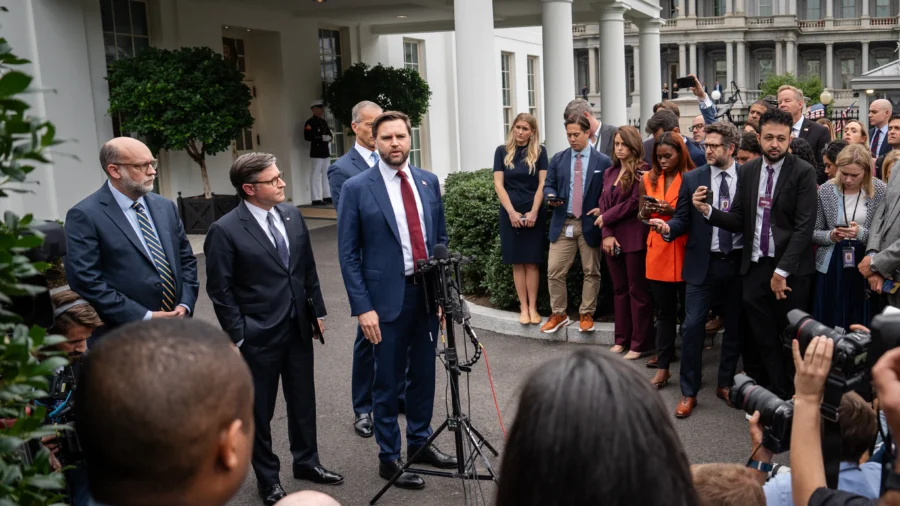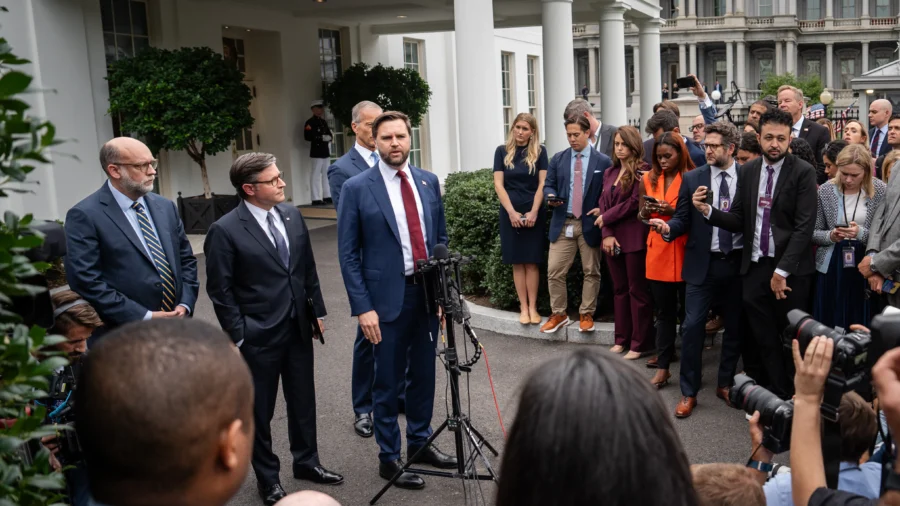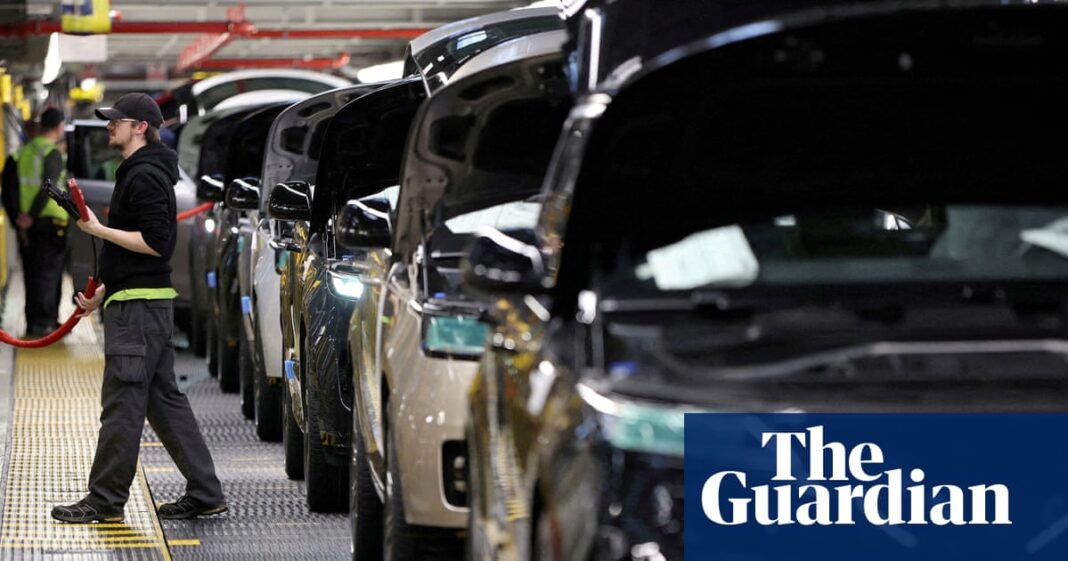
Vice President JD Vance on Wednesday addressed the media on what happens now that Congress failed to pass a short-term funding bill to keep the government open.
Three moderate democrats joined 52 republicans on Tuesday night in opposing the shutdown.
Moving forward, Vance said, Republicans will focus on getting more Democrats on board.
“We need five more [Democrats] in order to reopen the government and that’s what we’re going to focus on, how to get those five additional Democrats,” Vance said.
The vice president acknowledged that he wasn’t privy to the Democrats’ next move but predicted that a resolution would be reached sooner rather than later. Vance stressed that some moderate Democrats are already “cracking a little bit,” noting for years they have argued that the government should never be shut down over a policy disagreement such as health care.
“I can’t predict what congressional Democrats are going to do … I don’t think that it’s going to be that long of a shutdown,” Vance said, noting it was a “pure guess” on his part.
Democrats have already privately expressed the “irrationality of their position” and hope they publicly acknowledge it and reopen the government, according to Vance.
Republicans supported a short-term measure to fund the government generally at current levels through Nov. 21, but Democrats blocked it, insisting the measure address their concerns on health care. They want to reverse the Medicaid cuts in President Donald Trump’s package of tax breaks and spending reductions from the summer and they want to extend tax credits that make health insurance premiums more affordable for millions of people who purchase through the marketplaces established by the Affordable Care Act.
Vance acknowledged the layoffs that will happen under the funding lapse if the government continues to remain shut down.
The law requires agencies to furlough their “nonexcepted” employees. Excepted employees, who include those who work to protect life and property, stay on the job but do not get paid until after the shutdown ends.
Roughly 750,000 federal workers are expected to be furloughed, according to estimates by the Congressional Budget Office.
Those layoffs are “imminent,” White House press secretary Karoline Leavitt told reporters, adding that many federal workers will be forced to return to work without pay.
Low-income families can also expect disruptions to the Supplemental Nutrition Assistance, better known as SNP, as well as the Women, Infants and Children programs.
A government shutdown will also lead to delays in Medicare and Medicaid payments. Some Veterans Affairs services will also be impacted.
Moving forward, Leavitt said, the Office of Management and Budget (OMB) will provide further guidance on the services and programs impacted by the government shutdown.
“The federal government is not receiving any cash at the moment, and so @WHOMB has been tasked with looking over the receipts, and looking over the budget of the entire federal bureaucracy, and determining … what unfortunately is going to have to end,” Leavitt said.
The Associated Press contributed to this report.


